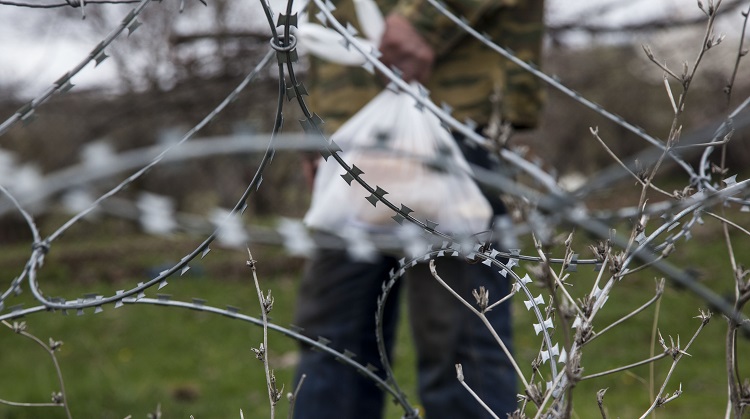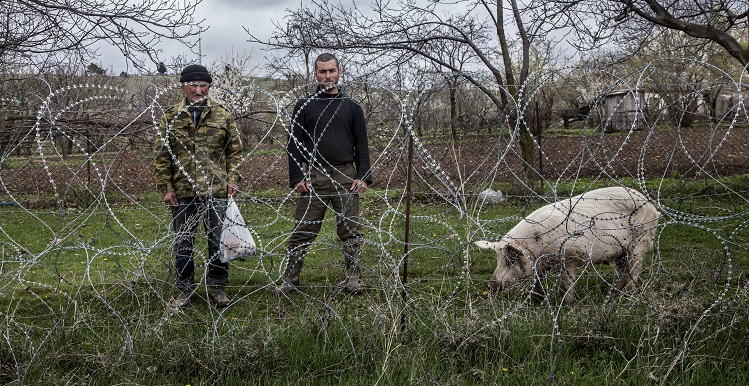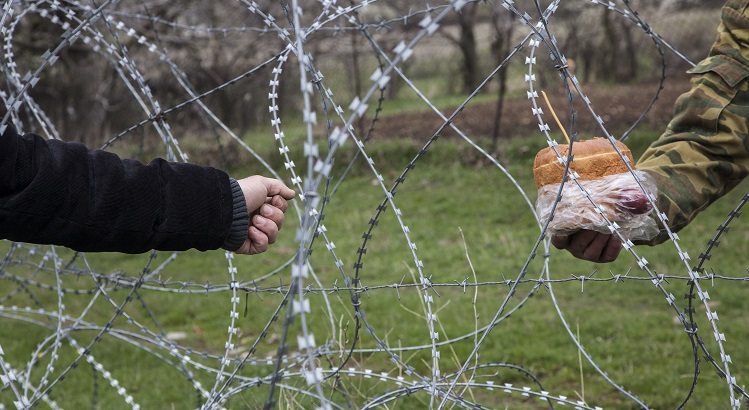Amnesty International: post-conflict boundary in Georgia splits communities, leaves thousands in limbo

Amnesty International says that Russian actions in Georgia harshly violates human rights. Photo: Nino Alavidze/Agenda.ge.
Amnesty International says that the attempts to physically demarcate a boundary between Georgia’s occupied regions of Abkhazia and Tskhinvali (South Ossetia) and the rest of Georgia by Russia and the regions’ de facto authorities have led to severe human rights violations.
Families are separated by barbed wire fences, cut off their livelihoods and at risk of arbitrary detention if they try to cross,”reads the report.
The report points at “the devastating impact” of efforts by Russian forces and the de facto authorities to set up an “international border” along the disputed boundary by installing barbed wire fences, ditches and other physical barriers which divide communities and cut villagers off from farmland, water sources, places of worship and even family burial sites.
 The yard of the men is divided into two by the barbed-fire-fence. Photo: Nino Alavidze/Agenda.ge.
The yard of the men is divided into two by the barbed-fire-fence. Photo: Nino Alavidze/Agenda.ge.
Lives are being strangled by these arbitrary measures. Hundreds of people face arbitrary detention every year trying to cross the line for no other reason than to see relatives, tend to their crops or access healthcare. Whole communities are being cut off from vital sources of income and other important aspects of their lives — punished solely because of where they happen to live,” said Marie Struthers, Amnesty International’s Director for Eastern Europe and Central Asia.
The report says that the election lr illegal fences has resulted in the closure of several official crossing points between Tskhinvali and Abkhazia and Tbilisi-controlled territories.
The erection of barbed wire fences has had a pernicious impact on what was once active cross-boundary trade. It has seriously eroded the social and economic situation in communities straddling the divide, as local producers have lost access to the nearest markets,” Struthers said.
Amnesty International called on Georgia to provide support to families whose economic, social and cultural rights have been negatively impacted because of the “borderisation”, including those who have lost access to their livelihoods.
 People are not allowed to cross the line on the Christian holidays. Photo: Nino Alavidze/Agenda.ge.
People are not allowed to cross the line on the Christian holidays. Photo: Nino Alavidze/Agenda.ge.
The report called upon the Russian government to fully respect its obligations under international human rights and international humanitarian law.
It called upon the international community, including the UN, EU, CoE and the OSCE to explore every available opportunity for effective monitoring of the human rights situation on the South Ossetian/Tskhinvali Region and Abkhazian sides of the occupation line, including contributing their expertise and other available resources to facilitate international monitoring of human rights.
As of late 2018, 34 villages had been divided by fences, separating residents not only from each other, but also from their farms, pasturelands, irrigation sources or village cemeteries. An estimated 800 to 1,000 families in total have lost all or partial access to agricultural land and woodlands near the South Ossetian/Tskhinvali Region Administrative Boundary Line.
Russia recognised Abkhazia and Tskhinvali as independent states after the Russia-Georgia 2008 war.
Only Nikaragua, Venezuela, Nauru and Syria have done so.
The rest of the international community says that the regions are occupied by Russia.
See the full report here.
 Tweet
Tweet  Share
Share